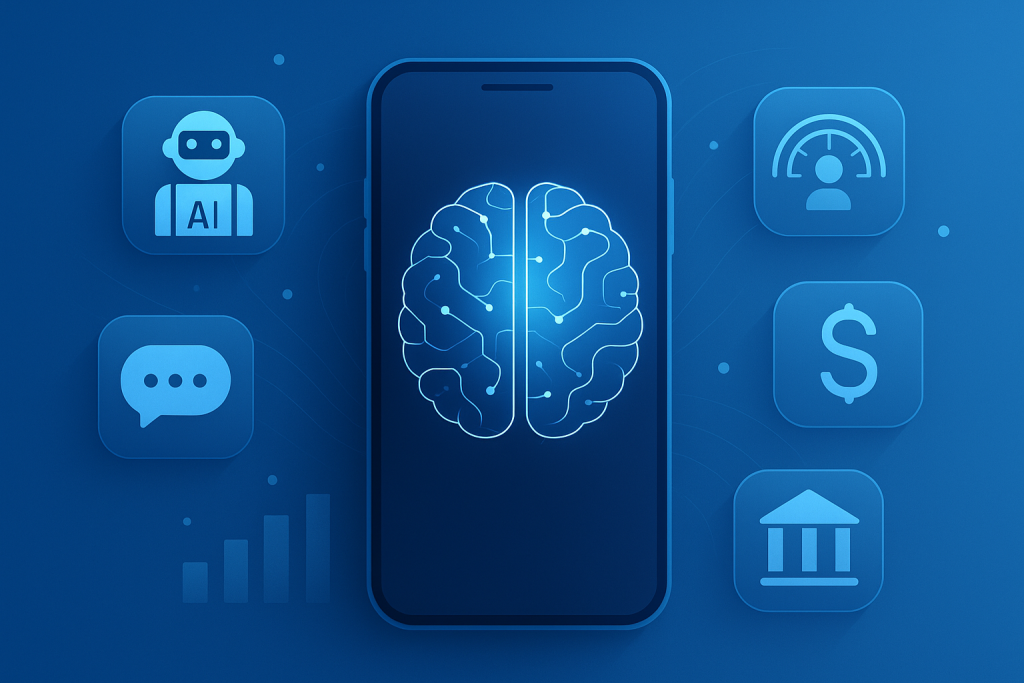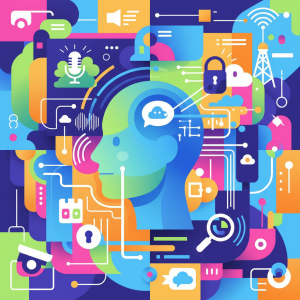The key phrase “Artificial Intelligence: The Heart of Technological Innovations” has stood out as one of the most impactful pillars in the modern era. From everyday solutions to advanced technologies, artificial intelligence is present in almost everything, especially in mobile applications. Therefore, understanding how this technology is shaping the future is essential for any modern user.
Surprisingly, artificial intelligence has gone from being a futuristic concept to a reality that can be accessed in the palm of your hand. Several applications already use AI to optimize tasks, improve experiences and, above all, offer practicality. And the best part: it is possible download app with these functions directly from PlayStore, in a simple way, with free download and safe.
Artificial Intelligence Applications in Action
In this increasingly connected scenario, it is impossible to ignore the growth of artificial intelligence applications. They are developed based on technologies such as machine learning, chatbots It is predictive analysis, allowing the user to enjoy personalized and intelligent solutions on their cell phone.
Furthermore, we cannot ignore innovations in areas such as virtual assistants for mobile phones, AI applications for healthcare, education It is finances. These features not only optimize the routine, but also offer real and reliable support to the user.
Artificial Intelligence Apps You Need to Know About
1. Replika – Virtual Assistant for Mobile Phones
Replika is an application for virtual assistant for mobile AI-based app that simulates conversations with a real friend. It is designed to evolve as you interact with it, becoming more personalized every day.
This application is an excellent choice for those looking for download app that offers emotional support, self-knowledge and even companionship. Thanks to machine learning, Replika can understand and respond in a coherent and empathetic way.
Plus, the app is free, easy to use, and available for download in the PlayStore, ensuring accessibility and efficiency for everyone who wants to experience powerful conversational AI.
2. Robin – AI for Personal Driving and Assistance
Robin is one of the best artificial intelligence applications for drivers and multitaskers. It works as a personal voice assistant, helping with directions, weather forecasts and even reading messages.
With Robin, it is possible download app that offers security, practicality and cutting-edge technology at the same time. When you speak to it, the app responds intelligently and fluidly, making the experience quite pleasant.
Ideal for those who live in a rush, this app can be free download in your system's app store. Additionally, it uses predictive analysis to learn from user behavior and offer more relevant responses.
3. FaceApp – Facial Recognition with Artificial Intelligence
FaceApp is a facial recognition application with AI that went viral for its ability to morph faces in real time. While fun, its technology is extremely advanced.
FaceApp's unique feature is its ability to apply realistic filters, predict aging and even change facial expressions. All of this with precision, thanks to the use of artificial intelligence It is machine learning.
The app is available for free download in the PlayStore, and is highly sought after by those who want to transform their photos with professional quality using AI.
4. Cleo – AI App for Finance
Cleo is one of the AI applications for finance that are growing the most in the world. It acts as a financial chatbot that helps with controlling expenses, budgeting and financial planning.
Thanks to your artificial intelligence, Cleo understands your spending habits and offers personalized tips to save money. It is excellent for those who want to control their finances with ease.
Available for download now, the application is in PlayStore with a user-friendly interface, becoming an essential tool for those seeking financial health with the help of AI.
5. Socratic – AI for Education
Socratic is one of the most promising AI applications for education, ideal for students of all ages. It uses Google's artificial intelligence to help with exercises, explanations and studies.
When you take a photo of a question, the app analyzes the content and provides the answer with detailed explanations. This makes studying more intuitive and efficient, helping you learn in real time.
Socratic can be free download directly on the PlayStore and it is an excellent option for those who want to improve their academic performance with the help of AI.
Features that Set AI Apps Apart
In general, the artificial intelligence applications offer much more than it seems at first glance. They not only optimize the use of your cell phone, but also provide safer and more personalized experiences. Below, we highlight some of their features:
- Intelligent Automation – Many of these applications operate without the need for constant manual commands, making navigation and use more intuitive.
- Chatbots and Smart Responses – Applications that use chatbots for customer service can solve problems quickly and accurately.
- Real-Time Data Analysis – A predictive analytics in mobile applications anticipates behaviors and offers solutions before the user even realizes the need.
These factors explain why more and more people are looking for download app with AI capabilities. After all, in addition to being practical, they are efficient, safe and accessible.

Conclusion: Artificial Intelligence at the Center of Transformations
We therefore conclude that the artificial intelligence applications have become the heart of technological innovations. With incredible features like virtual assistant for mobile, facial recognition, predictive analysis and much more, these apps are completely transforming the way we interact with technology.
So if you want to experience these transformations, start right now. download app, do the free download and test out all these amazing features. Most of them are available on PlayStore, ready to make your life easier with just a few clicks.
The trend is clear: the artificial intelligence will continue to be the driving force behind future technological revolutions. Have you started exploring these possibilities?




